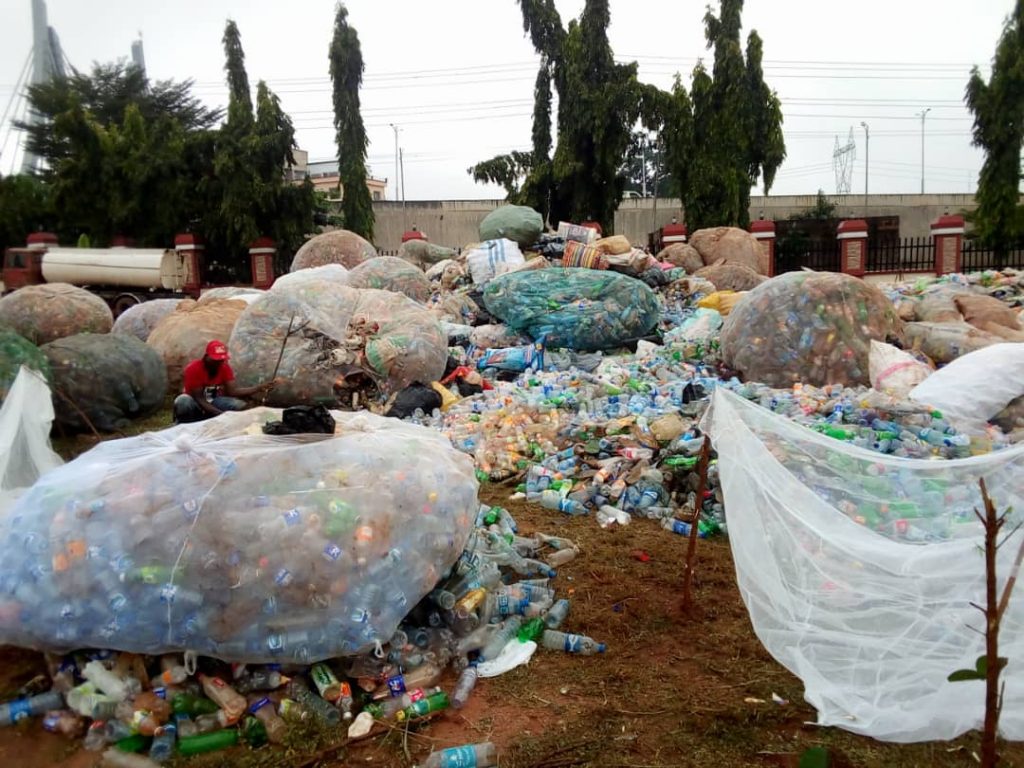Plastic pollution is a pervasive and growing problem all over the world. While plastic itself has valuable uses, human beings have become addicted to single-use or disposable plastic with severe environmental consequences.
Research findings show that around the world, one million plastic drinking bottles are sold every minute, while up to five trillion disposable bags are used worldwide every year.
The findings estimate that more than eight point three billion tonnes of plastics have been produced since 1950s. According to the research, about sixty per cent of those plastic products have ended up in either a landfill or the natural environment.
The plastic products are everywhere, Anambra state inclusive, and for many of us, they have become the integral part of our everyday lives.
Most of us have terrible habit in the way we dispose our plastic wastes; some throw them away from moving vehicles, from the balconies of our houses, not caring where they will end up.
These plastic wastes are a large contributor to pollution on the environment and as well pollute water bodies. Plastic wastes, whether in a river, an ocean or on land, can persist in the environment for centuries.
They clog sewers, drainages and provide breeding grounds for mosquitoes and pests, which can cause malaria and other harmful effects on humans.
Above all, plastic wastes, when littered anywhere, is a terrible eyesore. Therefore, drastic and urgent actions must be taken, if we must save our dear state from drowning in plastic pollution.
There are a number of things governments and non governmental organizations can do. They should be running public awareness campaigns or be offering incentives for recycling. Government can even introduce levies or ban certain products outright.
Recently, Team Anambra and Humanity Nigeria joined hands in the Five Million Guinness Plastic Challenge by picking up plastics in various dump sites, drainages, roadsides and at every nook and cranny of the state.
The Five Million Guinness Plastic Challenge is aimed at reducing non-degradable materials, especially plastics which pose harmful threats to the society with a view to sustaining a cleaner and healthier environment.
Anambra state residents are therefore requested to join hands in making the state clean and healthy by ensuring that their surroundings are clean.
Ndi Anambra and residents in the state must make use of refuse designated sites and avoid indiscriminate refuse disposal.
Ndi Anambra, let us join hands with our government wherever we are, to take concrete steps to beat plastic pollution in our own lives and help the government improve how wastes are managed.









Comments are closed for this post.